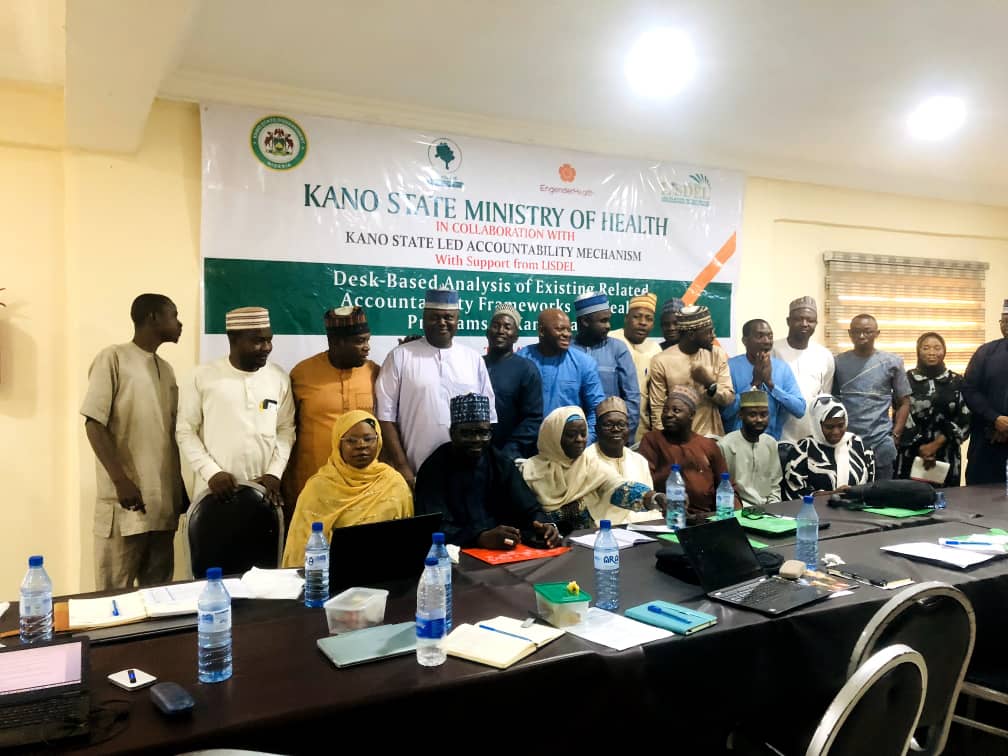The Kano State Ministry of Health, in partnership with the Kano State-Led Accountability Mechanism (KanSLAM) and with support from LISDEL, has taken strategic steps to improve transparency and accountability in maternal and child health MNCH service delivery across the state.
A two-day desk-based analysis workshop was held to review and strengthen existing accountability frameworks within the health sector.
MWAN, Partners Inaugurate Advocacy Champions to Drive MNCH in Kano
The workshop brought together key stakeholders, including government representatives, civil society organizations (CSOs), healthcare professionals, development partners, academia, and media practitioners.
The aim was to design a unified framework capable of tracking activities, identifying service delivery gaps, and improving the effective utilization of health resources—especially within Primary Health Care (PHC) services.
Declaring the workshop open on behalf of the Commissioner for Health, Dr. Abubakar Labaran Yusif, the Permanent Secretary of the Ministry, Pharmacist Aminu Bashir, underscored the state’s commitment to transparency in the health sector.
“We are here to ensure there is accountability across all systems in the Ministry of Health. This initiative by KanSLAM will help us maintain high standards in service delivery,” he said.
Pharmacist Maimuna Y. Muhammad, Co-Chair of KanSLAM, said the initiative aimed to bring together relevant stakeholders to jointly develop a practical accountability framework.
AHBN, SAMASHA Convene Stakeholders to Strengthen FP MNCH Accountability in Kano
“This framework is not just about identifying what’s wrong—it’s about recognizing the gaps and finding sustainable ways to address them,” she stated.
She also emphasized the importance of improved documentation and data-driven decision-making for better planning and resource mobilization.
“With stronger documentation, the PHC board will be better equipped to track performance and engage partners to support activities,” she added.
Speaking on behalf of LISDEL, Muhammad Inuwa Shuaibu, the State Lead for the PHC Accountability Partnership, highlighted the urgency of improving maternal and child health indicators in Kano, which he described as alarming.
“This workshop is an opportunity to examine the policy space, especially regarding PHC financing, budget performance, releases, and utilization. We need to develop a strong advocacy framework to improve service delivery,” Shuaibu said.
He applauded KanSLAM members—including representatives from CSOs, government, media, and academia—for their continued efforts in improving transparency in the sector.
Key issues discussed during the workshop included:
Review of existing financial accountability frameworks for Reproductive, Maternal, Newborn, and Child Health (RMNCH) and health security.
Challenges with documentation at health facilities, particularly related to filling registers.
Importance of routine monitoring and supervision to improve transparency and service delivery.
The workshop, held at Tahir Guest Palace, Kano, marks a significant step toward improving healthcare outcomes for women and children in the state.
It also strengthens the foundation for sustained advocacy, stakeholder engagement, and improved financial management in Kano’s health sector.





